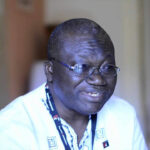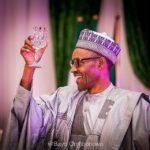As a child of independent Nigeria, independence discourse is a total commitment for me. Many thanks to our parents who out of nothing fought for self-determination. They went further to imbibe in us sense of patriotism, the best manifestation of which was the display of the “Green-White- Green” flag on every October 1st, marking Independence Day.
It is certainly fulfilling to witness Nigeria at 60. The young have grown as much as the nation. There were once patriotic governments that promoted deep sense of nationalism. There were also patriotic teachers with knowledge of history, (especially in the first and second generation public universities) who inculcated critical knowledge according to which Mungo Park, 19th century British explorer, did not discover River Niger, as much as Nigerians who for thousands of years lived by River Niger!
At 60, Nigeria and Nigerians must stop agonizing but raise the banner of freedom and independence with high GDP growth rate, poverty alleviation, equity, justice and deepened democracy.
Reviewing most commentaries on Nigeria at 60, it is regrettable that despair is taking the place of optimism. Which again points to loss of memory as much as absence of much needed patriotism. Sixty years of independence cannot be discussed in isolation from 200 years of Euro- American orchestrated trans-Atlantic trade in Africans as slaves.
From 16th to 18th century, what constituted present Nigeria was devastated by marauding slave traders who transported Africans to cultivate cotton and sugar cane which propelled industrialization in America and Europe. Then followed by wholesale colonial occupation in the 19th century.
The great historian, Walter Rodney in his classic: ‘How Europe Underdeveloped Africa’ observed (and I agree!) that “Colonialism had only one hand – “It was one-armed bandit!”
Sixty years after independence, of course we must agonize about the declining fortunes of the economy made worse by global coronavirus pandemic. Even at that, we should not forget that in colonial Nigeria, growth discourse was an aberration, an absurdity. The colonial policy, was to deliberately underdevelop Nigerian colony and develop colonial Britain through direct capital transfers which made the present P& ID & $9.6 billion a small scam. Scam was actually a British colonial legacy. With respect to industrialisation for instance, colonialism deliberately prejudiced against the establishment of industries. The key drivers of colonial Nigeria and indeed colonial Africa, were raw agricultural products to feed metropolitan industries.
African industrialization was deliberately blocked by the colonial governments acting on behalf of the metropolitan industrialists. Colonial authority deliberately undermined the growth of local enterprise such that 100 years of British rule did not set up a single value adding industry!
The celebration of independence therefore can only be appreciated against the background of de-industrialization of colonial era and commendable aggressive industrialization of post-colonial Nigeria by the founding fathers.
In the area of education, colonial education was designed to produce clerks and other functionaries to service the lower echelons of the colonial system. Colonial education never produced social scientists, engineers, nor Nobel Laurel! Yours truly, agrees that we can’t go on blaming the colonialists for all current challenges of insecurity, power failure, deepening inequalities and mismanaged diversity. But the point cannot be overstated that the spectre of colonial underdevelopment still hunts us today.
At 60 Nigeria has produced a Nobel Laurel, as many as 43 federal universities, 48 state universities, and 79 private universities. The British never set up any university, (university College Ibadan was an appendage of metropolitan UK University of London).
Nigeria has trained, thousands of doctors nurses, engineers in the past 60 years, sadly being exported back to Europe and America, a new voluntary slavery after abolition of forced slavery.
By 1980s Nigeria was marching towards full literacy with universal compulsory basic education and adult literacy campaign. At 60 it’s unacceptable that Nigeria parades new illiteracy with as many as 10 million children out of schools. Nigeria must learn and copy China, which at 70, (just a decade older) as a liberated country has almost banished illiteracy, gone to space, lifted more than 700 million people out of poverty, parades “over the past 70 years, GDP averaged annual growth rate of about 4.4 percent for the first three decades and 9.5 percent for the last four decades.
Also there must be in place drastic monetary and fiscal measures to overcome inequality in income and opportunities, failing which the country would be in perpetual underdevelopment.
The downside of Nigeria at 60 years of independence is what the ninth secretary-general of the United Nations, António Guterres rightly called “inequality pandemic” afflicting the whole world. It’s a sad commentary that Nigeria in 2020 is increasingly more unequal than it was at independence in 1960. The ranks of the poor are swelling by the hour, the rich are getting richer in minutes, but in fewer number. The middle class has virtually disappeared. There are more working poor as many as there are unemployed and unemployable. The received wisdom has it that Nigeria is the global capital of poverty.
Yes, as many as 100 million might be living below poverty level. But we should also not forget that Nigeria is also the home of few richest men and women of the world. According to Forbes report Nigeria, Egypt and South Africa are listed as few of Africa’s 54 nations with citizens in the global billionaires club. With billionaires by global standards, Nigeria is indeed capital of prosperity but only for a tiny few!
It is time Nigeria and Africa work for all citizens not for just for the few. The current income inequality in Nigeria cannot drive growth and development. The income gap is one avoidable fault line that is already manifesting in social explosions of varying dimensions. The 2019 UK-based OXFARM report says the combined wealth of Nigeria’s five richest men ($29.9 billion) could end extreme poverty in Nigeria. Nigeria needs radical redistribution of income and power to eliminate mass poverty, crimes and general insecurity. It is good that a Buhari administration has promoted conditional cash transfers through the introduction of measures like ‘Trader moni’, ‘farmers moni’. But beyond this singular tokenism, there is the need for intensified mass investment in public infrastructure especially in electricity to create equality of opportunities for all. Nigeria needs new industrial revolution that would give mass of youths sustainable decent works and sustainable incomes in line with Sustainable Development Goals of the United Nations.

 Join Daily Trust WhatsApp Community For Quick Access To News and Happenings Around You.
Join Daily Trust WhatsApp Community For Quick Access To News and Happenings Around You.

